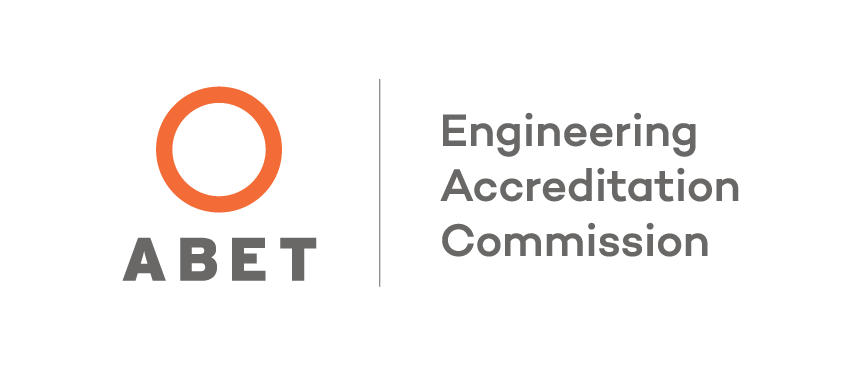Bachelor of science in electrical and computer engineering

Open doors to innovative fields and in-demand careers in automotive technology, energy, telecommunications, robotics, medical systems, satellites, and space exploration. The bachelor of science in electrical and computer engineering at Wayne State University equips you to understand embedded computer systems and enact real-world solutions with environmental, societal, economic and global benefits.
Program highlights
- Co-op programs
- Transfer-friendly: transfer up to 64 credits
- Year-round rolling admissions
- Guaranteed quality with our ABET accreditation
- Option to pursue 4+1 master's degree (AGRADE)
What will you learn in the electrical and computer engineering program?
Wayne State's rigorous, in-depth coursework and hands-on co-op and internship experiences prepare you to identify and solve engineering challenges using principles of engineering, mathematics and science.
You also gain the ability to:
- Apply engineering design to produce solutions that meet specified needs with consideration of public health, safety and welfare, as well as global, cultural, social, environmental, and economic factors.
- Communicate effectively with all audiences.
- Take ethical and professional responsibility for your engineering projects.
- Consider the impact of your engineering solutions in global, environmental, economic, and societal contexts.
- Function effectively as a team member who can lead, foster a collaborative environment, and establish tasks to progress toward goals and objectives.
- Develop and conduct experiments, analyze and interpret data, and draw conclusions using engineering judgment.
B.S. in electrical and computer engineering program curriculum
The electrical and computer engineering bachelor's degree curriculum and courses establish your foundations in programming, logic, circuits, microcomputers, control systems, and more. The program curriculum also expands your knowledge in general education courses and dives deep into special interest electives including computer architecture, quantitative physiology, engineering optics and nanoelectronics.
In addition, Wayne State's electrical and computer engineering major offers hands-on learning experiences through co-op placements, lab-based courses, and an integrative senior capstone project, in which you'll work with industry experts to help design a solution to a real-world problem.
Jumpstart your M.S. degree with the AGRADE (4+1) program
Our Accelerated Graduate Enrollment (AGRADE) program can give you a head start on your master’s degree. If you qualify after completing at least 90 credits of coursework, you will work with your undergraduate advisor and graduate program officer to develop a plan of work from which 16 credits of coursework apply toward both your B.S. and M.S. at Wayne State.
The AGRADE program allows you to save money — you can complete the coursework at the lower undergraduate tuition rates — and time, meaning you can graduate with your master’s up to two semesters early.
Research opportunities and extracurricular activities
At Wayne State University, we connect you with hands-on opportunities to build on classroom education that you won't find anywhere else.
Collaborate on real-world projects in student organizations and annual competitions like Warrior Racing, the Robotics Club, Chem-E car and Concrete Canoe. Or, join our industry-leading faculty in future-focused research areas like artificial intelligence, energy conversion, robotics and remote sensors.
Learn more about the undergraduate research experience.
Excellent career support
Achieve the extraordinary with the guidance and support of the College of Engineering's Career Services office. We'll support your career growth in all dimensions, from professional networks to co-op and internship placements to leadership and collaboration activities with more than 15 engineering student organizations.
Our close proximity to Midtown Detroit also offers a strategic advantage: you can form connections with engineering professionals, intern at leading companies, and set yourself up for long-term career success with industry giants – many of which are located right outside our campus.
What can you do with a bachelor's degree in electrical and computer engineering?
A bachelor's degree in Electrical and Computer Engineering (ECE) prepares you for a wide range of careers in technology and engineering.
Common paths include:
- Electrical or Computer Engineer – Design circuits, systems, and devices.
- Software or Embedded Systems Developer – Build software that interacts with hardware.
- Controls, Power, or RF Engineer – Work in automation, energy systems, or wireless tech.
- Telecommunications or Signal Processing Engineer – Develop communication networks and process data signals
- Robotics or IoT Engineer – Create smart devices and automated systems.
You can also pursue graduate studies, enter R&D, or transition into roles in business, consulting, or tech entrepreneurship.
These roles are in consistent demand with the median pay averaging to $118,780 per year, as of May 2024 (Bureau of Labor Statistics).
Affordable tuition and cost
Seize the opportunity to earn a highly sought-after and cost-effective bachelor's degree. Wayne State's flat tuition rate structure is one of the most affordable among Michigan's top-level universities.
We also offer generous financial aid packages, including university-wide first-year and transfer student scholarships, College of Engineering scholarships, and scholarships granted in partnership with community agencies and foundations in Detroit.
Use our net price calculator to estimate your total costs and savings.
ABET accreditation
Wayne State University's current Bachelor of Science in Electrical Engineering program is accredited by the Engineering Accreditation Commission of ABET, https://www.abet.org, under the commission’s General Criteria and Program Criteria for Electrical, Computer, Communications, Telecommunication(s), and similarly named engineering programs and is accredited by the Engineering Accreditation Commission of ABET.
We are currently transitioning from the Bachelor of Science in Electrical Engineering program to the Bachelor of Science in Electrical and Computer Engineering program. Wayne State University is currently being reviewed for accreditation by the Engineering Accreditation Commission of ABET.
Admission information
Application and admissions deadlines are rolling. We encourage you to apply by Dec. 1 for admission as a first-year student.
Learn more about Wayne State admissions.
If you are a transfer student, apply by June 1 to start in the fall semester or Oct. 1 to start in the winter semester. To transfer, you must have completed 24 transferable credit hours with a minimum GPA of 2.5. Our guide for community college transfer students can help you navigate the full requirements.
Reach your full potential with Wayne State University's B.S. electrical and computer engineering degree
Acquire hands-on experience and real-world connections that deeply influence your career. Gain expertise across broad topics, impact the field through real-world research and benefit from the affordability of Wayne State's bachelor of science in electrical and computer engineering program.
Mohamad Abdul-Hak
BSEE ‘99
As an undergraduate, I had the opportunity to work at WSU’s Fiber Optics Lab, which was a great experience working with some of the best research professors and graduate students. They guided me to eventually seek and complete my doctorate.
Mohamad Abdul-Hak
BSEE ‘99
